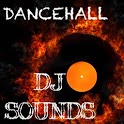
Believe it or not! 10,000+ users downloaded Dancehall DJ Sounds Soundboard latest version on 9Apps for free every week! The App has powerful functions. This hot app was released on 2013-04-08. Certainly you will love it after play.
Dancehall DJ Sounds sounds, quotes, and clips. Amuse and entertain your friends!App Features: Set sounds as ringtones, notifications, and alarmsPress and hold a sound for a popup that will allow you to set a sound as notification, alarm or ringtone.This is an unofficial free fan app. Any content not owned by this developer belongs to their respective owners. If there is an issue with this app contact us via the email address and we will remove it.Dancehall DJ Sounds sounds, Dancehall DJ Sounds sound effects, Dancehall DJ Soundsquotes.Please rate this app 5 stars! This free fan app is ad supported and may contain ads in the notification tray and/or home screen.Dancehall is a genre of Jamaican popular music that originated in the late 1970s. Initially dancehall was a more sparse version of reggae than the roots style, which had dominated much of the 1970s. In the mid-1980s, digital instrumentation became more prevalent, changing the sound considerably, with digital dancehall (or "ragga") becoming increasingly characterized by faster rhythms.Dancehall music has come under criticism from international organizations and individuals for its violent and sometimes homophobic lyrics, although the lyrical themes are more varied than simply dealing with slackness and violence.Dancehall owes its moniker to the Jamaican dance halls in which popular Jamaicans recordings were played by local sound systems. These began in the late 1940s among people from the inner city of Kingston, Jamaica who were not able to participate in dances uptown. social and political changes in late-1970s Jamaica were reflected in the shift away from the more internationally oriented roots reggae towards a style geared more towards local consumption, and in tune with the music that Jamaicans had experienced when sound systems performed live. Michael Manley's socialist People's National Party (PNP) government had been replaced with Edward Seaga's right wing Jamaica Labour Party (JLP). Themes of social injustice, repatriation and the Rastafari movement were overtaken by lyrics about dancing, violence, and sexuality.Musically, older rhythms from the late 1960s were recycled, with Sugar Minott credited as the originator of this trend when he voiced new lyrics over old Studio One rhythms between sessions at the studio, where he was working as a session musician. Around the same time, producer Don Mais was reworking old rhythms at Channel One Studios, using the Roots Radics band. The Roots Radics would go on to work with Henry "Junjo" Lawes on some of the key early dancehall recordings, including those that established Barrington Levy, Frankie Paul, and Junior Reid as major reggae stars. Other singers to emerge in the early dancehall era as major stars included Don Carlos, Al Campbell, and Triston Palmer, while more established names such as Gregory Isaacs and Bunny Wailer successfully adapted.Sound systems such as Killimanjaro, Black Scorpio, Gemini Disco, Virgo Hi-Fi, Volcano Hi-Power and Aces International soon capitalized on the new sound and introduced a new wave of deejays. The older toasters were overtaken by new stars such as Captain Sinbad, Ranking Joe, Clint Eastwood, Lone Ranger, Josey Wales, Charlie Chaplin, General Echo and Yellowman — a change reflected by the 1981 Junjo Lawes-produced album A Whole New Generation of DJs, although many went back to U-Roy for inspiration. Deejay records became, for the first time, more important than records featuring singers. Another trend was sound clash albums, featuring rival deejays /or sound systems competing head-to-head for the appreciation of a live audience, with underground sound clash cassettes often documenting the violence that came with such rivalries.Two of the biggest deejay stars of the early dancehall era, Yellowman and Eek-a-Mouse, chose humour rather than violence.